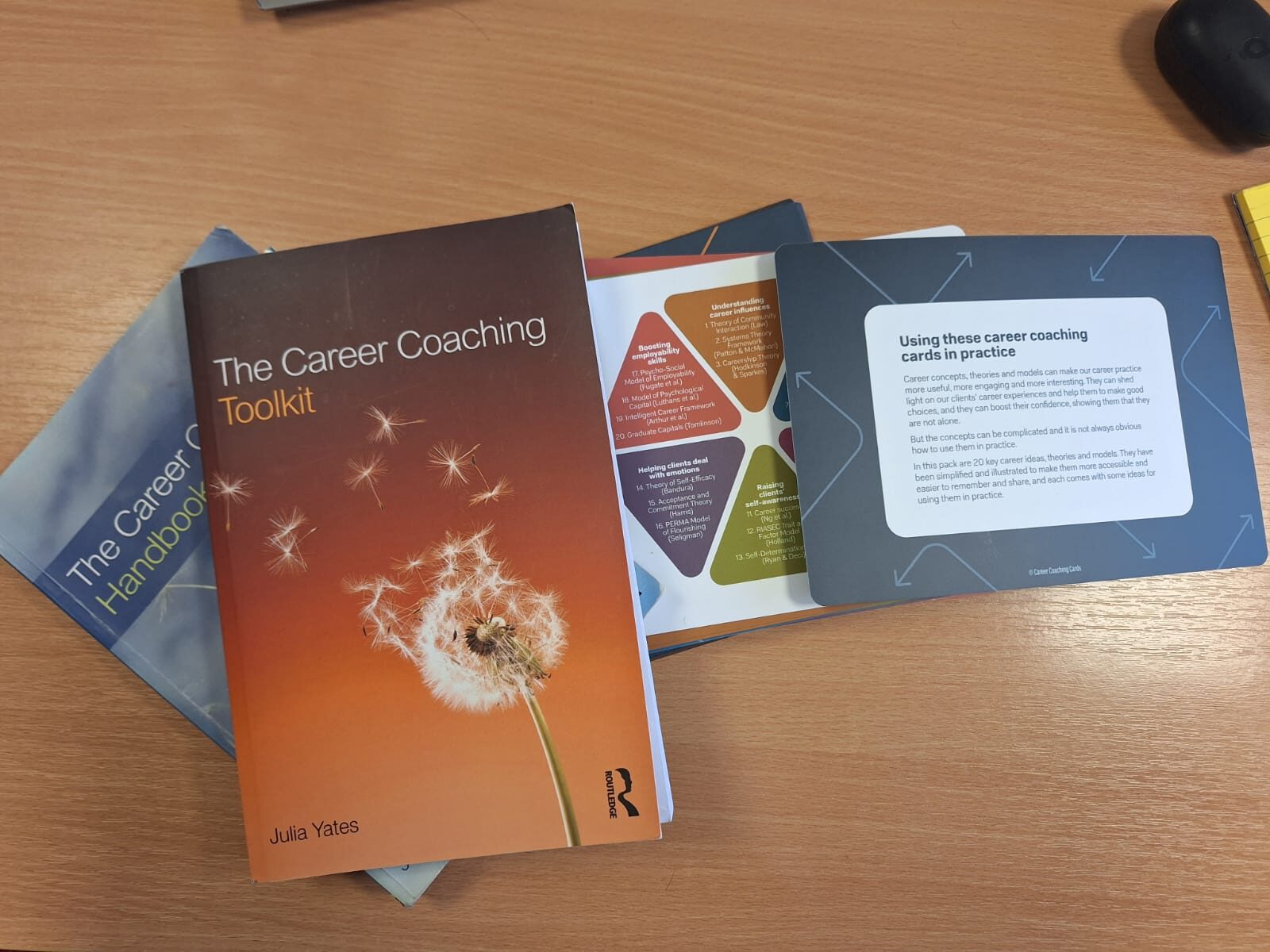45-Minute Scripted Session (with 3 Career Coaching Cards)
0–5 min | Welcome & Orientation
Coach:
“Thanks for being here today. We’ll use these Career Coaching Cards as prompts. Each card reflects an idea that can help people think about their careers. I’ll invite you to pick a few that stand out, and we’ll use them to imagine the future you’d like and the steps to get there. By the end, you’ll leave with one small, practical action to try. How does that sound?”
(Check agreement.)
5–10 min | Miracle Question
Coach:
“Suppose a small miracle happens overnight. Tomorrow morning you wake up and you’re on track in your preferred career future. What would be the very first sign?”
(Listen for observable signs — e.g., “I’d wake up excited to go to work,” “I’d be preparing for a job I care about.” Write it down in client’s words.)
Follow-up:
“And if others noticed too, what would they see you doing differently?”
10–15 min | Card Selection
Coach:
“Here are the cards. Please take a moment to choose 2 or 3 that stand out to you. Don’t overthink it — just go with your instinct.”
(Client picks: Planned Happenstance, Systems Theory Framework, Career Success.)
Coach:
“What was it about these cards that caught your attention?”
15–25 min | Exploring Card 1: Planned Happenstance
Coach (reading aloud the card idea):
“This model suggests careers often grow from unplanned events, and we can build skills to notice and act on those opportunities.”
SF prompts:
“Imagine this was happening in your life. What’s the smallest sign you’d notice that you’re ready to spot and use new opportunities?”
“On a 0–10 scale, where 10 is you always notice and use opportunities, where are you now?”
“What helped you be at that number rather than lower?”
“When have you made good use of an unexpected chance in the past? What did you do then that worked?”
(Capture strengths and actions — e.g., curiosity, networking, saying yes.)
25–30 min | Exploring Card 2: Systems Theory Framework
Coach (reading aloud):
“This framework says our careers are shaped by many influences — personal, social, environmental — all interacting together.”
SF prompts:
“Who or what around you influences your career in ways that help?”
“When have those influences supported you before?”
“If your preferred future were happening, how would these influences show up then?”
(Client might mention supportive family, a mentor, location, or values. Note helpful systems.)
30–35 min | Exploring Card 3: Career Success
Coach (reading aloud):
“This idea reminds us that success is defined differently by each person — it’s not only about salary or promotion.”
SF prompts:
“What does career success mean for you personally?”
“When have you already experienced some of that success, even in small ways?”
“What was different about you or your actions at those times?”
(Elicit personal values, self-awareness, and past successes.)
35–40 min | Synthesising & Small Next Step
Coach:
“You’ve talked about spotting opportunities, noticing supportive influences, and defining success your own way. Looking at these together, what’s one small step you could take this week that would move you toward your preferred future?”
(Help refine into specific, observable action, e.g., “Reach out to one former colleague for a coffee,” “Update my CV with skills that reflect my definition of success.”)
Scaling:
“On a 0–10 scale, how confident are you that you’ll do this?”
“What would move you up one point?”
40–44 min | Strengthening Commitment
Coach:
“What will be different once you’ve done this step? Who will notice?”
“I noticed how you already used curiosity and networking when you took that unexpected opportunity in the past — that’s exactly the skill Planned Happenstance is about. It’s clear you already have what it takes.”
44–45 min | Close
Coach:
“Let’s sum up: you picked Planned Happenstance, Systems Theory Framework, and Career Success. Your preferred-future sign is [client’s words], and your next step is [specific action]. We’ll check in on how that goes next time. How are you feeling as we wrap up?”
Why This Works
Planned Happenstance → empowers the client to own opportunities.
Systems Theory Framework → highlights supportive networks and contexts.
Career Success → grounds the conversation in personal values.
Solution Focused stance → keeps it future-oriented, resource-based, and step-driven.
